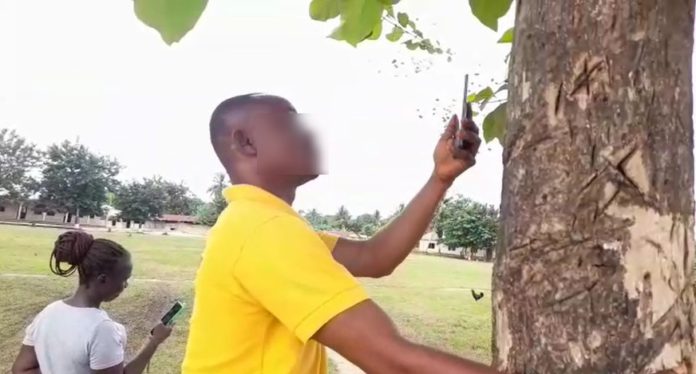Denkyira Meretweso, a predominantly agricultural community in the Upper Denkyira East Municipality of the central region, is grappling with a lack of reliable telecommunication network coverage.
As a result, residents find themselves resorting to scaling hills or climbing trees just to make phone calls.
The absence of a stable network reception has left the community feeling disconnected and excluded from the government’s digitalization initiatives.
The situation is not only affecting personal communication but also causing significant harm to local businesses.
The community has voiced its concerns, highlighting the difficulties posed by the poor connectivity.
Nurses and teachers, in particular, are reluctant to accept positions in the area due to the challenges they face in staying connected.
One resident expressed their frustration, emphasizing the potential risks in emergencies, stating, “If a disaster strikes and we are here, finding a place to make an emergency call to NADMO will be difficult. Even reaching the municipal capital before establishing a stable network could result in significant damage.”
Another resident shared the difficulties faced during nighttime and the need for reliable communication.
“Living in this neighborhood has become challenging, especially when we require phone services,” they remarked.
Cosmos Ayiribi, a mobile money operator, highlighted the adverse impact of the network issue on their business operations.
Without a stable network, transactions cannot be conducted, leading to losses and hardships for their customers. Ayiribi stated,
“Our business is suffering because we are unable to function without network connectivity. It takes over 10 minutes just to access mobile money codes, let alone process transactions.”
In response to the situation, Kwame Nsowaah Salvation, an assemblyman of the area, appealed to both the government and telecommunications companies to urgently expand their services to Denkyira Meretweso.
The aim is to foster growth, improve the social fabric, and enhance the economic well-being of the community’s residents.
ALSO READ

